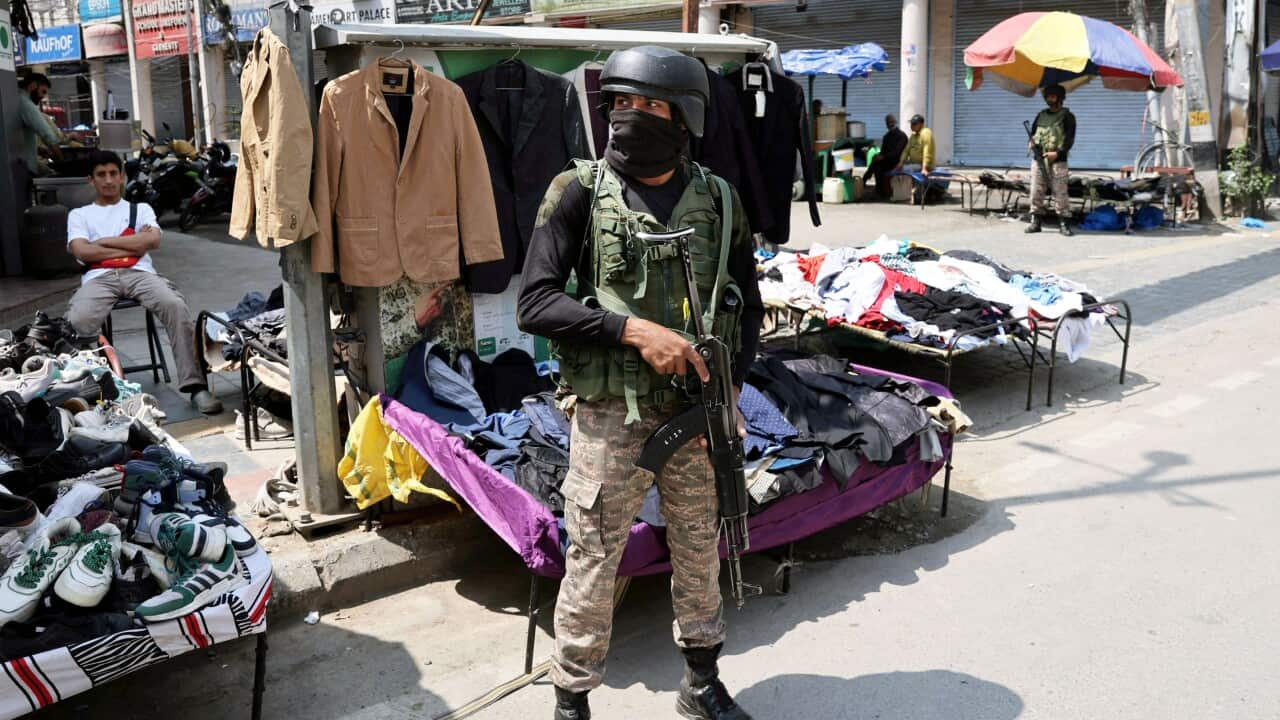A fragile ceasefire was holding between India and Pakistan on Sunday, after hours of overnight fighting between the nuclear-armed neighbours, as United States President Donald Trump said he will work to provide a solution regarding Kashmir.
The arch rivals were involved in intense firing for four days, the worst in nearly three decades, with missiles and drones being fired at each other's military installations and dozens of people killed.
A ceasefire agreement was reached after diplomacy and pressure from the United States, but within hours, artillery fire was witnessed in Indian-administered Kashmir, the centre of much of the fighting.
Blasts from air-defence systems boomed in cities near the border under blackout, similar to the previous two evenings, according to authorities, residents and Reuters witnesses.
Late on Saturday, India said Pakistan had violated the understanding arrived to stop firing and that the Indian armed forces had been instructed to "deal strongly" with any repetition.
In response, Pakistan said it was committed to the ceasefire and blamed India for the violations.
By dawn, the fighting and explosions reported overnight had died down on both sides of the border, according to Reuters witnesses.
Power was restored in most areas along India's border towns after a blackout the previous night.
Trump praised leaders of both countries for agreeing to halt the aggression and said he was "proud that the USA was able to help you arrive at this historic and heroic decision".
"While not even discussed, I am going to increase trade, substantially, with both of these great nations. Additionally, I will work with you both to see if... a solution can be arrived at concerning Kashmir," Trump said in a post on Truth Social.
- India-Pakistan conflict: There's a major reason why neither wants all-out war, experts say
- Is the India-Pakistan conflict spilling over to Australia and could it get worse?
- INTERVIEW: The conflict in Kashmir
In the border city of Amritsar, home to the Golden Temple revered by Sikhs, a siren sounded in the morning to resume normal activities brought a sense of relief and people were seen out on the roads.
Officials in Pakistan said there was some firing in Bhimber in Pakistani Kashmir overnight but nowhere else, and there were no casualties.
News of the ceasefire was greeted with relief on both sides of the border, and Pakistan's airports authority said its airspace had been fully reopened after previously announcing a 24-hour closure.
Despite the truce, two Indian government sources told Reuters that the punitive measures announced by India and reciprocated by Pakistan, such as trade suspension and visa cancellations, would remain in place for now.

US secretary of state Marco Rubio has said that he and vice president JD Vance had engaged with Indian Prime Minister Narendra Modi and Pakistan's Shehbaz Sharif, Indian foreign minister Subrahmanyam Jaishankar, Pakistan's army chief Asim Munir, and the two national security advisers over the course of 48 hours.
In a post on X, Rubio commended Modi and Sharif on the agreement, which he said included not only an immediate ceasefire but also the start of talks on "a broad set of issues at a neutral site".
The latest round of violence
Conflict between the South Asian neighbours reignited on Wednesday, when India attacked what it said was "terrorist infrastructure" in Pakistani-administered Kashmir and Pakistan.
It came two weeks after 26 people were killed in an attack on Hindu tourists in Indian-administered Kashmir, which India accused Pakistan of backing.
Pakistan denied India's accusations that it was involved in the attack.
Days of cross-border fire, shelling and drone and missile attacks followed.

India and Pakistan have been locked in a dispute over Kashmir ever since they were born at the end of British colonial rule in 1947.
India and Pakistan both claim it in full but administer separate parts.
They have gone to war three times, including twice over Kashmir, alongside numerous smaller outbreaks of fighting.
For the latest from SBS News, download our app and subscribe to our newsletter.

